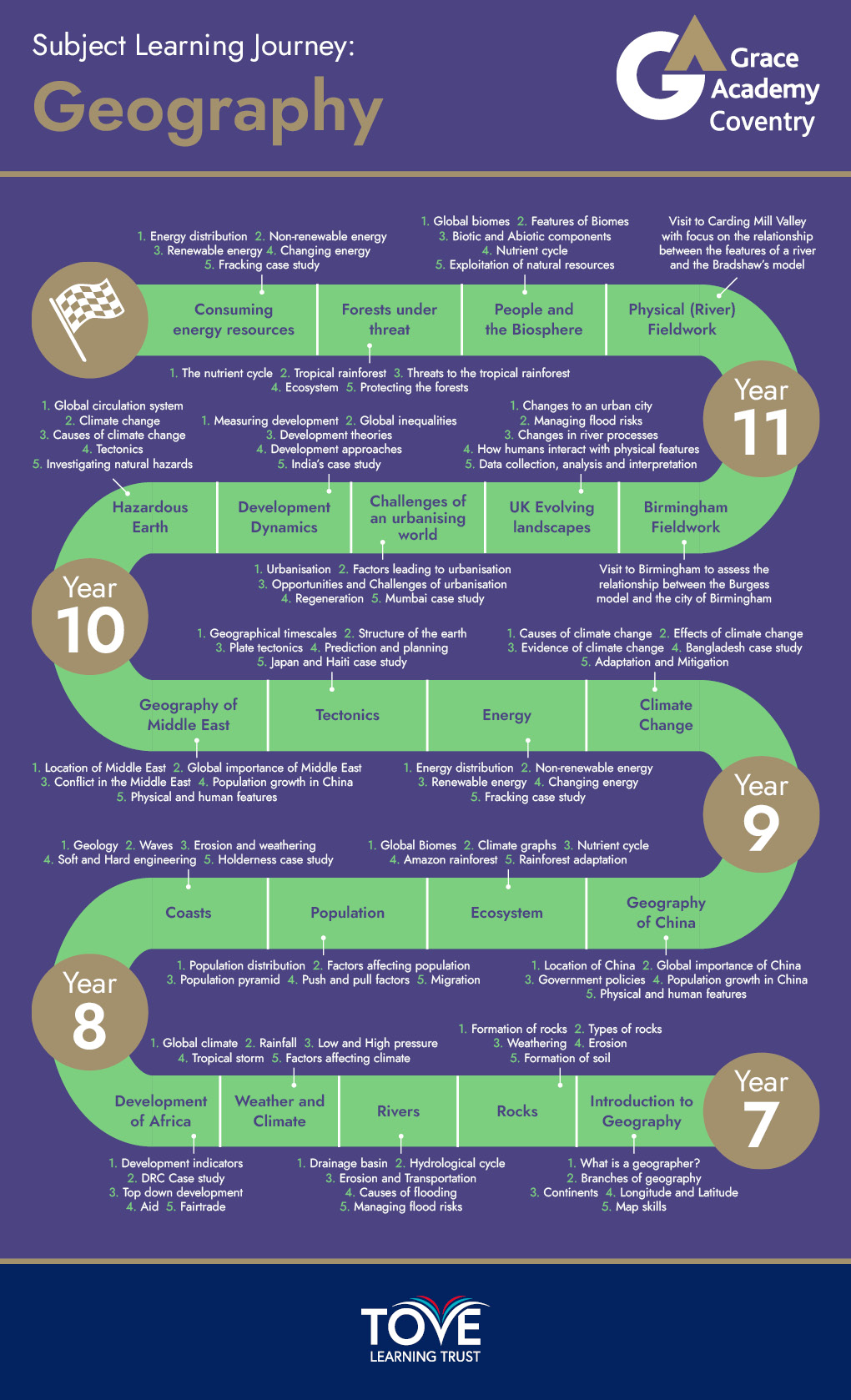Geography
Curriculum Intent
Geography at Grace academy Coventry will provide students with a wide range of geographical knowledge. Students are given the opportunity to develop ideas and make informed judgements. Students are able to recognise the differences and dynamics in cultures, economies, landscapes and environments across the world ,and the links between them. Students are encouraged to be inquisitive explorers.
Through the study of both physical and human Geography, students can explore their own sense of place and space. Students will have the opportunity for extra-curricular learning whereby they can visit and explore destinations enabling them to apply powerful knowledge that they can relay back to their classroom learning. Students will have the opportunity to carry out fieldwork which will allow them to gain first-hand, practical experiences which support and reinforce knowledge, skills and concepts explored in the classroom.
Our curriculum will prepare students to access both Post 16 and Higher Education opportunities showing their limitless potential. They will have relevant and meaningful knowledge to access the growing geographical and technological sectors, building on the values and understanding learned through Geography at Grace Academy.
Qualification information:
https://qualifications.pearson.com/en/qualifications/edexcel-gcses/geography-b-2016.html
Curriculum content:
Attached are the curriculum maps which outline the sequence we use in order to structure our learning. If you would like to support your child's learning, we have attached links to Oak National Academy who provide lessons, activities and resources for commonly taught topics. Please use the curriculum map for this subject before visiting:
https://teachers.thenational.academy/subjects/geography/key-stages/key-stage-3
https://teachers.thenational.academy/subjects/geography/key-stages/key-stage-4

